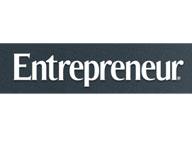Faculty News
—
Professor Viral Acharya's joint research on banking stress tests is spotlighted
—

Excerpt from the Financial Times -- "The report’s authors — ZEW’s Sascha Steffen, NYU Stern’s Viral Acharya and University of Lausanne’s Diane Pierre — argue that the tests dramatically underestimate the actual capital shortfall at the banks, which they say could be as high as €900bn based on a market measure of capital."
Faculty News
—

Excerpt from the Financial Times -- "The report’s authors — ZEW’s Sascha Steffen, NYU Stern’s Viral Acharya and University of Lausanne’s Diane Pierre — argue that the tests dramatically underestimate the actual capital shortfall at the banks, which they say could be as high as €900bn based on a market measure of capital."






















